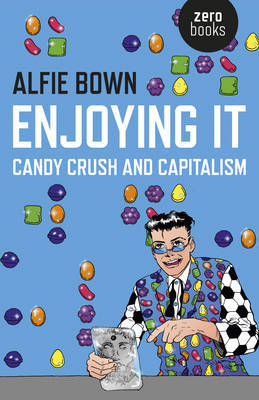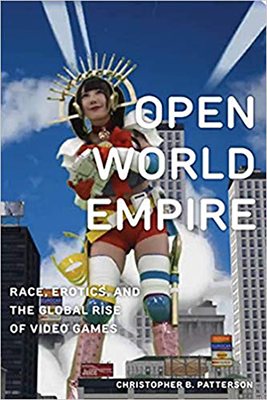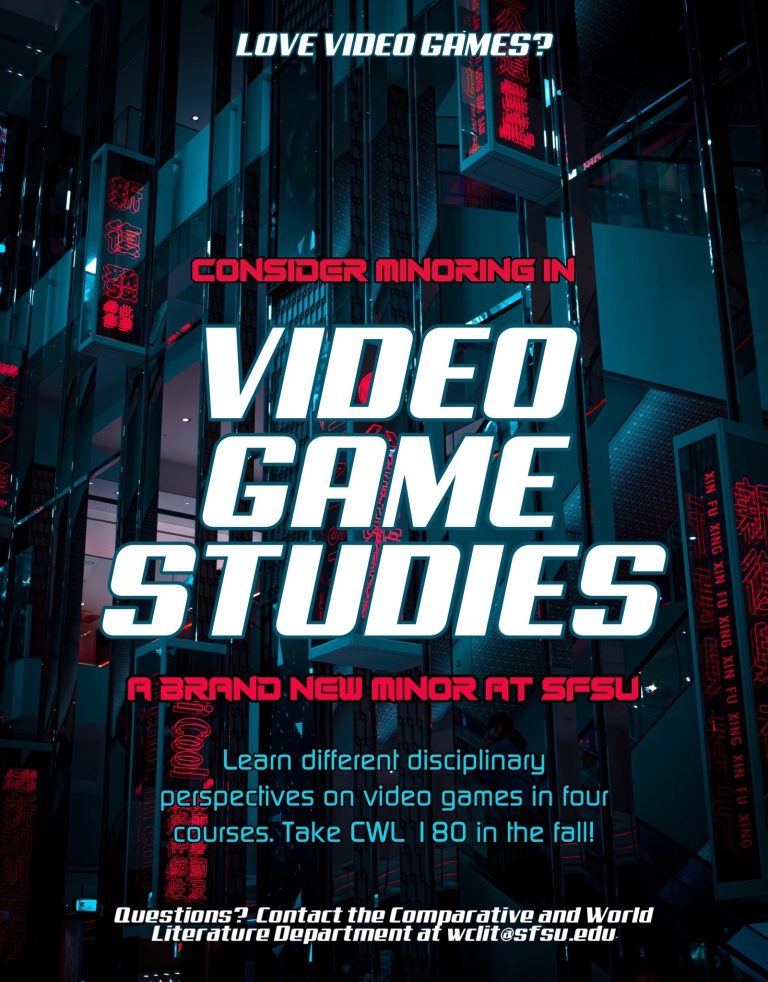ludos play logia study ludology
Thinking with Video Games
Instructor: Rob Thomas, Ph.D.
This course meets the Field II: Interpretation and Theory and/or Field III: Reception and Impact electives for the Video Game Studies (VGS) minor at SFSU. This class is a Zero Cost Course Materials class.
Course Description
Welcome to Thinking with Video Games. This course is an experiment in thinking with and through video games. It is important that we have fun in this class. Students will have the opportunity to write about video games of their own choosing in relation to the work we study, allowing our class to take the form of a “choose your own adventure” course. Student-directed play will be deeply integrated into our course assignments and activities.
Video: BurgerTime (Data East, Japan, 1982). Original title: Hamburger. Created for the Deco Cassette Arcade System.
Header image: Plexiglass Marquee for Nintendo Super System (1991). Plundered and hacked by Rob Thomas.




Race, Erotics, and the Global Rise of Video Games.
How can we play and think seriously about videos games as a paradigm, a way of thinking-in-images, about the historical present?
Video games and their worlds are obviously manufactured. They’re completely made up. They’re fictions, but they’re fictions we’ve created under unique historical and technological circumstances. It’s okay to love video games while also thinking seriously about why we love them. What are the pleasures of these fictional worlds we have built that we call video games? And what can they do? How do video games make contemporary forms of subjectivity? In other words, how do we make ourselves through making and playing video games? How do video games impact our everyday lives? To help us explore these, and other issues, we will analyze select episodes of Rick and Morty, cheesy documentaries (High Score, RESET: The Underground Guide to Video Games), and study works of gamer theory, like Enjoying It: Candy Crush and Capitalism (Alfie Bown) and How To Do Things with Video Games (Ian Bogost).
Video games are forms of expression that are also forms of play. This course thinks video games in affective or non-representational ways. But this also means thinking about the unique history and material conditions within which video games have been made and received. Students will be introduced to challenging scholarship, such as Patterson’s Open World Empire, which places video games alongside their uniquely Asian production and reception process: one that is intimately tied to our experiences of play, fandom and global cultures, despite most of us never thinking about many of these important foundations and connections.
As a simultaneously tactile and visual medium, video games speak to us about broad changes in how we experience media, today. Cinema is no longer the culturally dominant form. In fact, video games have long since overtaken music and cinema to become the dominant form of media in Western cultures. We experience media, today, in decentralized and networked forms; from viral videos, to streaming shows, to podcasts, to graphic novels, to comics and cartoons, and to video games. Students will be introduced to the concept of the post-cinematic, a way of thinking about this new media regime, through contemporary scholarship (Shaviro, Post-cinematic Affect) and close readings of select films (Gamer, Southland Tales). Issues of race, gender, sex, sexuality, and class will also be addressed.
Game designer and neuroscientist Adrian Hon’s, You’ve Been Played: How Corporations, Governments, and Schools Use Games to Control Us All (2022), will be critically studied in the larger social, historical, and theoretical contexts of this course.
This course is interdisciplinary in every sense of the word. No background in theory, philosophy, media studies, video game studies, or cinema studies is required in order to take this course.
Everyone is welcome in this class. The online discussions (learning communities) are, above all, a space where students are allowed to have a voice. It’s really important, especially with what is going on in the world, that we support each other and strive to be respectful of our differences, our contributions, and our points of view. From the primary course materials to the work we will do in the online forums, this is an inclusive class in every way.
Please reach out to me if you need anything at all. That is what I am here for.
Background image: screen grab from Elevator Action (Taito, Japan, 1983). Created for the Taito SJ System.
Minor in Video Game Studies at SFSU
SFSU has a new minor in Video Game Studies (VGS)!! I am proud to be part of this exciting new minor at SFSU. You can earn a VGS minor with as little as three elective courses (including this one), as long as you've taken CWL 180: "Introduction to Video Games," which is required for the minor. Be sure to check out the website for the Minor in Video Game Studies at:
https://humcwl.sfsu.edu/videogamestudies


Rob Thomas, Ph.D.
I've been teaching video games for over a decade and have taught at various universities and colleges since 1998. I have been a Lecturer in Humanities and Comparative and World Literature at San Francisco State University since 2003.
My courses are broadly concerned with the relationship between contemporary culture and the history of Western philosophy, with an emphasis on modernism/modernity, theories of the image, porn studies, affect, cinema, gender, sexuality, critical race theory, video games, San Francisco, and political economy.
I hold a Ph.D. in Comparative Literature from the Program in Philosophy, Literature, and the Theory of Criticism at the State University of New York (SUNY), Binghamton (2005), MA in Instructional Technologies from San Francisco State University (2022), MA in Philosophy from SUNY, Binghamton (2004), MA in Humanities from San Francisco State University (2000), and a BA in Liberal Arts from Evergreen State College (Olympia, WA) (1997).
I am on the web at https://theorist.io
Background image: screen grab from Stranger Things (USA/2017) by the Duffer Brothers.
